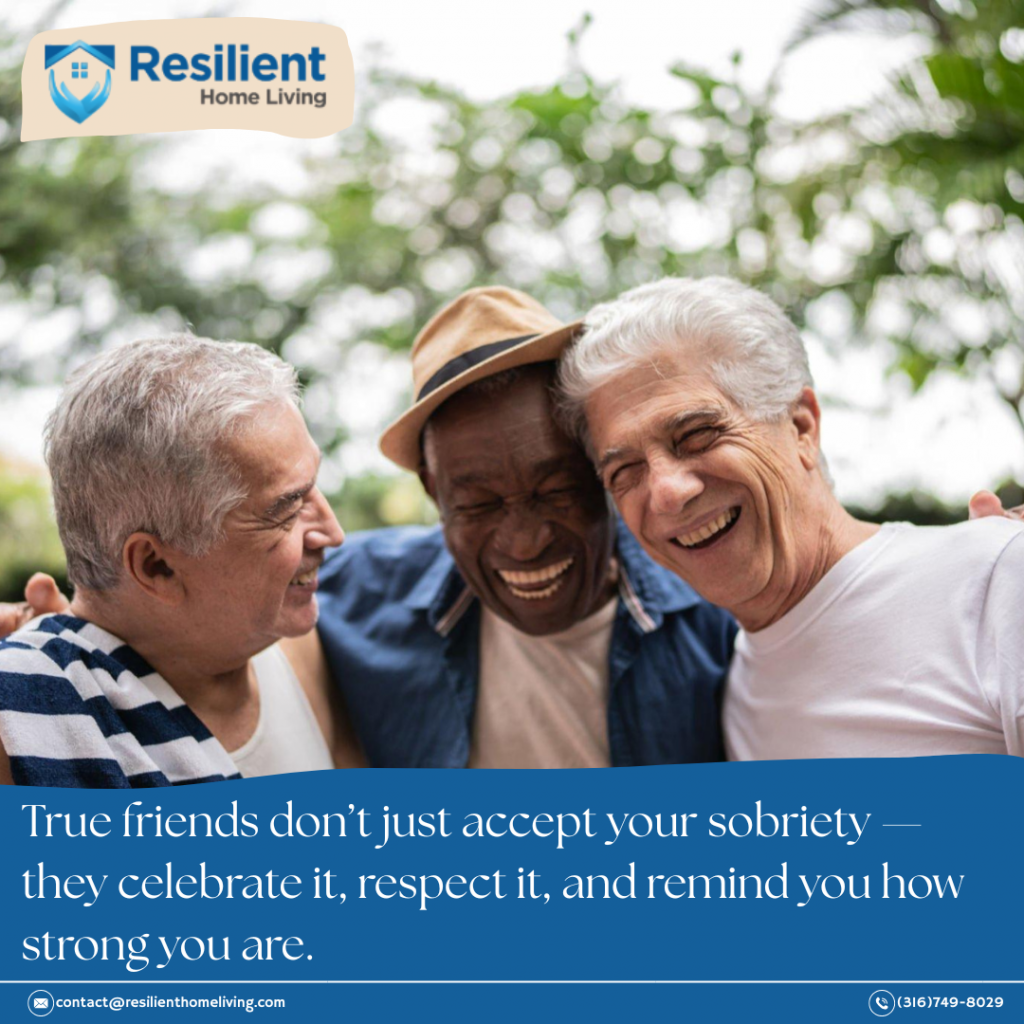Introduction
Sobriety doesn’t just change your relationship with substances — it changes your relationship with people, too. For many, recovery comes with the realization that some old friendships no longer align with a healthier lifestyle. Maybe those friends still drink or use, or maybe their idea of “fun” feels triggering. This can feel lonely at first, but it’s also an opportunity: to create a new circle of friends who truly understand and support your journey.
Making new friends as an adult can feel intimidating, but the good news is: recovery naturally opens the door to deeper, more meaningful connections.
🌱 Why Supportive Friendships Matter in Sobriety
Friends shape your environment. Having people who respect your sobriety can:
- Reduce temptation and triggers.
- Provide emotional support during challenging times.
- Celebrate your milestones with genuine joy.
- Remind you that sobriety is not about losing fun but gaining healthier, richer connections.
When you surround yourself with friends who “get it,” you’ll feel more empowered to stay true to your recovery goals.
🌱 Where to Find New Friends Who Support Your Recovery
1. Support Groups
Twelve-step meetings, recovery circles, and other sober groups are natural places to find people who understand your journey. Friendships here often feel authentic from the start because of shared experience.
2. Community & Hobby Groups
From yoga classes to hiking clubs to cooking workshops, joining activities aligned with your interests helps you meet people in a natural way — and the focus is on connection, not substances.
3. Volunteering
Giving back to your community not only builds purpose, but also connects you with like-minded, compassionate people who share your values.
4. Online Communities
Recovery-friendly apps, sober social media groups, and forums are safe spaces to connect with others worldwide. Many of these friendships grow into real-life connections.
5. Professional Development Spaces
Networking events, workshops, or classes related to your career can lead to friendships built around growth and shared goals rather than old habits.
🌱 How to Nurture New Friendships in Sobriety
- Be Honest About Your Journey: You don’t have to overshare, but letting friends know you’re sober sets healthy expectations from the start.
- Suggest Sober-Friendly Activities: Coffee meetups, hikes, board game nights, or workout sessions keep socializing fun and aligned with your lifestyle.
- Celebrate Small Wins Together: Invite friends to share in your milestones — they’ll feel included, and you’ll feel supported.
- Communicate Boundaries: If a friend’s habits are uncomfortable for you, it’s okay to voice your needs. True friends will respect them.
- Invest Time & Consistency: Just like sobriety, friendships take commitment. Show up, check in, and be present.
🌱 Dealing with Old Friends Who Don’t Support Your Sobriety
Sometimes, the hardest part isn’t making new friends — it’s stepping back from old ones. It doesn’t mean you don’t care for them, but if they make your recovery harder, it’s okay to limit contact. Protecting your sobriety always comes first.
🌟 Final Thoughts
Friendship in recovery isn’t about quantity — it’s about quality. The people you bring into your life should celebrate your growth, respect your boundaries, and remind you of the joy sobriety brings.
Sobriety isn’t about isolation; it’s about connection. And with patience and openness, you can build a circle of friends who walk beside you with encouragement, laughter, and trust.

